Living in the Gulf South brings enormous benefits, but it comes with its challenges, too. Dangerous tornadoes, sweeping fires, and hurricanes are just a few of the natural disasters that can cause various types of property damage claims – not to mention criminal destruction of property.
As a homeowner, you pay your insurance premium each month with the understanding that if the unthinkable happens, your insurance company will be there for you. Unfortunately, it is often not that simple.
If you’ve tried to read through your insurance policy, you likely came away more confused than before you started. Full of legal jargon and confusing language, these contracts are not written for the layperson to understand.
That’s where Huber Thomas Law comes in. We can help you through the process of filing an insurance claim with a singular goal: getting you the compensation you are owed. We know this can be a confusing topic, and we are here to answer your questions so you can get through this difficult time and start rebuilding as soon as possible. Here are 5 things to know about property damage claims.
If you’re ready for a free legal consultation or have further questions about handling various types of property damage claims, contact Huber Thomas Law at (504) 274-2500.
Willful Damage
According to Louisiana law, willful damage to property refers to “the simple criminal damage to property is the intentional damaging of any property of another, without the consent of the owner.” This includes vandalism and malicious disruption affecting your home, business, or vehicle.
What are the common examples of willful damage?
Common examples of willful damage include:
- Damage to windows
- Broken exterior lights
- Cutting or damage to trees, bushes, and other landscaping
- Graffiti
- Arson
- Knocking down mailboxes, signs, and other property
Does my homeowner’s insurance cover willful damage to my home?
Homeowner’s insurance should cover this type of damage, but you will need to read your policy to determine your specific coverage. In most cases, homeowner’s insurance will cover the cost of repairs or replacement of the damaged or destroyed property.
Does my auto insurance cover willful damage to my vehicle?
It depends on your insurance policy. If you have full coverage, then it is likely that willful damage to your vehicle is covered.
Tornado Damage
According to the Insurance Information Institute, insured losses from tornadoes top about $17 billion in the average year. Even a relatively weak EF0 tornado, which reaches maximum wind speeds of 85 miles per hour, can result in downed trees and other property damage. The most serious tornado, an EF5, has wind speeds of greater than 200 miles per hour and will destroy nearly every building in its wake.
Is the tornado damage to my home or vehicle covered by my insurance policy?
Your homeowner’s policy should cover tornado damage. Unfortunately, that does not mean that your insurance company will simply hand over a check for 100% of the cost of repairs and replacement. You may have to fight to get a speedy and fair payout.
If your vehicle is damaged in a tornado, it might be covered by your homeowner’s insurance policy if it was being kept in a garage at the time it was damaged or destroyed. Otherwise, your auto insurance policy might cover damage, depending on the level of coverage you elected to purchase.
Is debris removal included in my insurance policy?
Most homeowners’ policies will pay “reasonable expenses” for debris removal of your covered property. This would include removing damaged shingles, siding, etc. While there is likely no compensation for lost trees or bushes, your policy likely covers “reasonable expenses” to remove critically damaged trees and bushes from your property.
Fire Damage
Fire damage in your home or business can be caused by everything from arson to downed power lines. In 2021, there was nearly $16 billion of direct property damage in the United States. This does not include the significant costs of secondary property damage from the smoke itself, or from the water or chemicals used to put out the fire.
Is fire damage included in my homeowner’s policy?
Fire damage is standard in most homeowners’ insurance policies. However, there might be exceptions for certain types of fires or for a homeowner’s actions that the insurance company claims led to the fire. You can purchase separate or additional coverage if you live in an area at high risk for fire.
What are the most common causes of fire damage?
Many things can cause fire damage in a home. Some of the most common causes include:
- Poor electrical work
- Lightning strike
- Overloaded electrical systems
- Ovens and other appliances
- Grills
- Furnaces
- Defective washing machines
Should I clean up the fire damage as soon as possible?
Many homeowners want to get back to a sense of normalcy as soon as possible and want to clean up the debris immediately. Remember that there could be evidence your attorney needs to prove your claim. Before removing anything, get written confirmation from your insurance company that they have fully inspected the site. Talk to an attorney if you are not sure.
What Do I Do if I Have One of the Abovementioned Types of Property Damage Claims?
The first step is to contact your insurance company and file a claim. The insurance company will then assign an adjuster to your case, who will start working on it. They will talk to you directly and inspect the property you are making a claim for. When they have completed their inspection, they will decide how much the insurance company is going to pay you
What Do I Do if My Property Insurance Claim is Denied?
In the unfortunate event that your insurance provider denies your claim, you should make sure you get the denial in writing. Then contact a Louisiana property damage attorney for help.
What Do I Do if the Insurance Adjuster Offers Less Than the Actual Cost of Repair?
Insurance companies often give the impression that you have no choice but to accept their offer. This is not necessarily true. If you do not believe that what they are offering is fair, you have the legal right to obtain fair compensation.
Why Isn’t the Insurance Company Offering Me Fair Payment for My Property Damage Claim?
Remember that the insurance adjuster works for the insurance company – not you. Insurance companies make money by taking in more money in policy premiums than they pay out in claims. Their goal is to pay as little as possible without triggering a lawsuit.
It is Taking My Insurance Company Forever to Pay Out My Property Damage Claim – Is There Anything I Can Do?
At Huber Thomas Law, we have seen insurance companies delay claims in the hope that the insured will either give up on collecting their claim or be willing to accept less than their claim is worth to get the process over with. Do not fall for this tactic – contact a property damage attorney instead.
What is Additional Living Expenses (ALE) Coverage?
Most homeowners, renters, and condo insurance policies will include additional living expense (ALE) coverage. It is designed to pay for extra expenses a homeowner faces if they are unable to live in their home due to a covered insurance claim.
What expenses does ALE cover?
ALE aims to bridge the gap between what your typical household expenses would have been if your property had not been damaged, and the additional expenses you incur due to the damage. It can cover things like:
- Hotels or rent for other temporary housing
- Additional food costs related to not having a kitchen (i.e., the cost of eating in restaurants)
- Paying for laundry services
- Boarding your pets
- Replacing your clothing
- Storage costs
- Renting furniture
Renters insurance and condo insurance also typically have additional living expenses insurance.
What are the limits for ALE?
It depends on your specific policy, but generally, it will not be higher than 20% of your dwelling coverage. For example, a 20% ALE limit on a home insured for $200,000 would be $40,000. This coverage aims to keep you at your “normal standard of living.” What this means could be negotiated between you and your insurer.
There might be time limits to your ALE coverage as well. Your insurance policy’s declarations page will outline the specifics of your ALE coverage.
What happens if my home is only partially damaged?
If you suffered damage from a hurricane or have other types of property damage claims in which it is not obvious that your home is uninhabitable, your insurance provider might claim that ALE coverage does not apply as you can live in your home.
Your property damage attorney can help you win a claim for ALE coverage in the event of such a denial.
Is There a Deadline to File a Lawsuit for Louisiana Property Damage Claims?
Yes. You do not have an unlimited amount of time to decide what your next step is. The statute of limitations on property damage claims in Louisiana is generally two years from the date the damage occurred. This is just one of the reasons to talk to a successful property damage attorney as soon as possible.
How Can an Attorney Help with Different Types of Property Damage Claims?
When you contact Huber Thomas Law, we will begin by reviewing your claim and the damage to your property. Our next steps will depend on the specifics of your case but could include the following:
- Working with expert witnesses
- Using cutting-edge technology to recreate the conditions of the cause of the damage
- Extensive research to build a strong claim on your behalf
More than nine out of ten cases will settle out of court, but we prepare for every case as though it is going to trial. This shows the insurance company that we are serious about recovering the maximum compensation we can. It also ensures that we can take your case to trial to get a fair outcome if required.
Call Today for Help with These and Other Types of Property Damage Claims
The above covers three of the many types of property damage claims you might face. At Huber Thomas Law, we can help with other insurance claims, including those related to hurricane damage including the most recent Hurricane Ida which made landfall in 2021. If you are ready to hold your insurance company accountable and get help recovering the maximum compensation you are eligible for, contact us today for a free legal consultation.
The Jones Act is a federal statute that requires that goods transported between United States ports are to be carried on vessels that are owned and operated by citizens or permanent residents of the United States. The full copy of the Jones Act can be found in Section 27 of the Merchant Marine Act of 1920.
But the Jones Act doesn’t only apply to maritime commerce—it also provides significant protections to maritime workers classified as “seaman” under the Jones Act by allowing them to bring direct negligence actions against their employers following a workplace injury. This is a stark contrast to the traditional workers’ compensation scheme that prevents most land-based workers (and longshoremen) from maintaining negligence claims against the companies they work for.

All manner of commercial vessels may fall under the Jones Act, including but not limited to tugboats, tankers, oilfield service vessels, container and cargo ships, cruise ships, and commercial fishing vessels. The Jones Act even extends to some offshore drilling rigs, drilling ships, and production platforms designed to a reasonably practical degree for transporting persons or cargo over navigable waters.
Three Requirements Must Be Met for the Jones Act to Apply
There are three requirements that must be satisfied in order to be eligible for Jones Act compensation:
- The person must fit the definition of a “seaman” as outlined in the Act;
- The incident must occur within the course of the person’s job ; and
- The person’s illness or damage must be the product of their employer’s or another employee’s negligence.
The Definition of a “Seaman”
Only those who are deemed “seamen” are covered by the Act. Under the Jones Act, a person qualifies as a seaman if they have a connection to a vessel or a fleet of vessels that is substantial in both time and nature.
Courts generally consider whether a person’s labor supports a ship’s function or the attainment of the vessel’s goals or missions when deciding whether that person meets the Act’s definition of a seaman.
Contract employees, longshoremen, and port workers are not eligible for the Jones Act seaman status, though they may be able to file lawsuits for their injuries under other maritime statutes or general maritime law.
There Are Three Types of Actions You Can Assert as a Jones Act Seaman
Under the Jones Act and general maritime law, a seaman may assert claims for (1) Jones Act negligence, (2) unseaworthiness and/or (3) maintenance and cure. These claims are described below.
(1) Jones Act Negligence
The seaman’s first claim, under the federal law known as the Jones Act, is that his/her employer was negligent, and that this negligence was a cause of his/her injuries. Jones Act employers can be negligent for:
- doing an act that a reasonably prudent person would not do,
- failing to do something that a reasonably prudent person would do, under the same or similar circumstances,
- failing to provide for the safety of the crew,
- failing to comply with a duty required by law,
- assigning the seaman to perform a task that he/she was not adequately trained to perform and/or
- failing to provide a reasonably safe place to work
Significantly, in a Jones Act claim, the word “negligence” is liberally interpreted. For example, Jones Act employers bear the responsibility for any negligence that played a part, however slight, in causing a seaman’s injuries. Further, the fact that an employer conducted its operations like that of other companies is not dispositive of whether it was or was not negligent.
(2) Unseaworthiness
The seaman’s second claim is for unseaworthiness of a vessel that caused his/her injuries. A shipowner owes every member of the crew employed on its vessel the absolute duty to keep and maintain the vessel and all its decks and passageways, appliances, gear, tools, parts, and equipment in a seaworthy condition at all times. A seaworthy vessel is one that is “reasonably fit for its intended use.”
The duty to provide a seaworthy vessel extends to the duty to supply an adequate and competent crew. And a vessel may be unseaworthy even though it has a numerically adequate crew, if too few persons are assigned to a given task.
The duty to provide a seaworthy vessel is said to be “absolute” because the owner may not delegate that duty to anyone else. Significantly, liability for an unseaworthy condition does not in any way depend on negligence or fault or blame—if an owner does not provide a seaworthy vessel, no amount of care or prudence excuses the owner from liability.
(3) Maintenance and cure
A seaman’s third claim is for what is called “maintenance and cure.” “Maintenance” refers to the cost of food, lodging, and transportation. “Cure,” on the other hand, refers to the medical care owed to a seaman who suffers an injury or illness while working in the service of the ship. Cure is owed until the seaman reaches what’s known as “maximum medical improvement.”
A seaman is entitled to maintenance and cure even if he/she is not injured as a result of any negligence on the part of his employer or any unseaworthy condition of the vessel. To recover maintenance and cure, a seaman need only show that he/she suffered injury or illness while in the service of the vessel on which he/she was employed as a seaman.
If, after investigating a maintenance and cure claim, the employer unreasonably rejects the claim, the employer is liable for both the maintenance and cure payments and for compensatory damages caused by the unreasonable failure to pay. Additionally, the employer may have to pay punitive damages and attorney’s fees if it is determined that its failure to pay maintenance and cure was not only unreasonable but was also a willful and wanton disregard of the seaman’s claim for maintenance and cure.
Damages
If a judge or jury finds that an employer is liable for Jones Act negligence or unseaworthiness, then the seaman is entitled to compensation. The following damages can be recovered:
- past and future physical pain and suffering, including physical disability, impairment, and inconvenience, and the effect of the seamen’s injuries and inconvenience on the normal pursuits and pleasures of life;
- past and future mental anguish and feelings of economic insecurity caused by the disability;
- income lost in the past;
- impairment of earning capacity or ability in the future, including impairment of the seaman’s earning capacity due to his/her physical condition;
- past medical expenses; and
- future medical expenses
Even Seamen Who Were Partially at Fault for Their Injuries Could Be Eligible for Compensation Under the Jones Ac
Even if they contributed to the accident or incident that led to their injuries, seamen are nonetheless eligible for compensation under the Jones Act. Even if they played just a small part in the harm, vessel owners may still be held accountable. The total amount of damages, however, may be reduced to account for the percentage of fault attributed to the injured seaman.
Family Members Can Assert Jones Act Claims on Behalf of their Loved Ones Involved in Fatal Maritime Accidents
When a family member passes away due to a sickness or injury sustained at work on a vessel, the Jones Act gives the family the ability to file a wrongful death lawsuit. The seaman’s death must have happened while he or she was working for the employer in connection with the vessel, just like with other Jones Act claims, and as a result of that employer’s carelessness.
Get in Touch with a Reputable Maritime Law Attorney Today
You may be entitled to compensation if you or a loved one were hurt while working in the service of a vessel.
And, whatever you do, please do not accept any settlement offers from your employer or their insurance carrier before speaking with a qualified maritime attorney like those at Huber Thomas, LLP.
When you suffer an injury due to someone else’s negligence , you may have grounds to bring a personal injury claim against them.. But you do not have an unlimited time to do so; you need to bring the action before the deadline for filing expires. We call that filing deadline the “prescriptive period” here in Louisiana, while the rest of the country refers it as the “statute of limitations.” Missing the deadline could mean that you are time-barred from bringing the claim altogether.
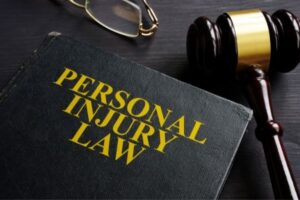 While other states allow injured parties to file suits as long as four years after the accident, in Louisiana, you generally have just one year to file a personal injury claim. That is why it is important to talk to an attorney sooner rather than later. You do not want to lose out on the compensation you deserve due to personal injury statute of limitations.
While other states allow injured parties to file suits as long as four years after the accident, in Louisiana, you generally have just one year to file a personal injury claim. That is why it is important to talk to an attorney sooner rather than later. You do not want to lose out on the compensation you deserve due to personal injury statute of limitations.
What is the Purpose of the Personal Injury Statute of Limitations?
The main reason there are statutes of limitations is due to the erosion of evidence over time. If you are involved in a car accident today but do not bring a lawsuit for ten years, it would be difficult for either party to build a case.
They would likely not have access to witnesses, all physical evidence would likely have been destroyed, and their memory might not be clear about what happened either. The personal injury statute of limitations aims to ensure that both parties can build their strongest possible case so that justice can be served.
When Does the Clock Start on the Statute of Limitations
The "clock" of the statute of limitations generally starts ticking in most personal injury claims on the day the harm occurred. For instance, the date the collision happened in an automobile accident case.
What Happens if I File After the Personal Injury Statute of Limitations?
Although there are a few exceptions, you should know that a court may dismiss your case if you bring a lawsuit after the applicable statute of limitations period has expired. You could lose your chance to get a judgment ordering compensation for your losses and injuries.
What Are the Personal Injury Statutes of Limitations in Louisiana?
For most personal injury cases in Louisiana, you have one year from the date of the accident to bring the case. However, several exceptions to that general rule may apply.
What Are the Exceptions to the Personal Injury Statutes of Limitations in Louisiana?
Cases Involving Minor Children
The statute of limitations for accidents involving a child permanently injured by defective products begins on the child's 18th birthday, not the day of the event. Accordingly, regardless of their age at the time of the accident, they lose their right to submit a claim when they turn 19.
Multiple At-Fault Parties
The statute of limitations may be interrupted when a plaintiff brings a personal injury claim against one of several culpable parties before the deadline for filing. The plaintiff may then file a lawsuit against additional at-fault parties if an inquiry turns up further proof. A multi-vehicle collision is one illustration of this.
The Discovery Rule
After an accident, you can often quickly tell that you are injured and what caused that injury--consider an automobile or truck accident for example. Some injuries, however, do not have a "reasonably discoverable" underlying cause until years later.
When an injury or damage is not immediately obvious, the statute of limitations does not begin to run until the victim "knows or should reasonably know" that their injury is related to the person or entity that caused it. In other words, the victim must genuinely become aware of the problem before the time begins to run.
This is known as "the discovery rule," and it frequently applies to situations involving defective products, exposure to dangerous substances, and medical malpractice. A good example of this would be a products liability case where a particular chemical compound caused a plaintiff to experience injuries that were not immediately apparent.
Other Exceptions to the Statute of Limitations
Various other exceptions could apply, including:
- The plaintiff is deemed mentally incompetent
- The claimant is a prisoner
- The accused filed for bankruptcy
- The defendant is not within the state's or the county's purview
- Negotiations for a resolution are still going on between the two parties
Your injury attorney can help you determine if your case qualifies for one of the exceptions.
Does the Personal Injury Statute of Limitations Apply to Wrongful Death Cases Too?
Yes. However, there is one main distinction. While the clock on a typical personal injury case will begin on the date of the injury, a wrongful death case's clock begins on the date of the death.
For example, if your loved one suffered an accident on June 1st but survived for another six months, the clock to file a wrongful death case would start on the date of their death – not on the June 1st date of their accident.
Timely Lawsuits in the State of Louisiana
It’s important that you act quickly if you want to file a personal injury lawsuit in the state of Louisiana. Your inability to file in a timely manner ultimately hurts you and your family if you’re seeking compensation for your damages.
If you believe you have grounds for a personal injury case, it is in your best interest to contact an attorney as soon as possible. If you have questions about statutes of limitations, or a personal injury claim, we at the Huber Thomas, LLP want to hear from you.Feel free to contact us with any questions you may have at 504-274-2509.
You don't have to spend much time in Louisiana to know that it's truly a unique state. What many people don't realize is that Louisiana law has its own structure. While every one of the 49 other states in the country follows common law, Louisiana is the only state to follow civil law.
What does this mean, and what could it mean for your case? Keep reading to learn the facts about what makes Louisiana law so unique. If you believe you have grounds for a personal injury case or for any of our other areas of practice, contact us today for your free legal consultation.
The Main Distinction Between Common Law and Louisiana Law is the Way the Judges Make Decisions
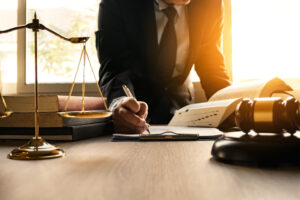
In common law, judges follow what's known as precedent when making decisions. Precedent refers to court decisions that the judges use as an authority when deciding further cases. Attorneys bring up precedents (i.e., previously decided legal decisions) with facts similar to the case they're presenting to the judge.
The hope with common law is that everyone will be treated the same way by applying the law in the same way to cases with the same or similar facts. In Louisiana law, judges make decisions based on the Civil Code.
A Deeper Dive into the Specifics of Louisiana Law
The civil law system is code-based, and Louisiana legislators look to address specific legal areas through statutes or codified rules. When a judge hears a case, they are tasked with interpreting the code rules and applying them to the case in front of them.
The decision the judge makes may very well have an impact on future cases. Still, that judge's reasoning and interpretation of the law will have little to no effect outside of that specific case they are deciding. In other words, the decision the judge makes on one case does not create a precedent that requires a future judge to decide a case in a certain way.
More on the Common Law System
In contrast, the common law system that is used in the other 49 states is based on the judicial interpretation of laws. In other words, courts interpret laws to ascertain the politicians' intentions when passing them, and this interpretation directs how the law should be used in a certain situation.
The judiciary has the chance to issue opinions outlining how the law should be interpreted during the appellate review of cases. These rulings serve as a guideline for the court and any lower courts that fall within its purview. This is known as sit decisis, which means "let the decision stand" in Latin.
The common law in that region is based on the court's interpretation. By doing this, the court creates a body of common law that operates in conjunction with the statute.
The History of the Civil Code
The Napoleonic Code, often known as the Civil Code, originated in two countries with civil law systems: Spain and France. Because both Spain and France once owned Louisiana, the Napoleonic Code was developed by combining legal systems from the two nations, creating the melting pot that is Louisiana law today.
The term "codified" refers to the civil legal system in Louisiana, composed of a compilation of laws and legislation. Certain laws must be adhered to when a case is presented before a court.
The court considers these laws, "dissects," and renders a decision in accordance with that understanding. To put it simply, Louisiana Civil Law favors judicial interpretation over a more objective or traditional view of the law.
The History of Common Law
The common law system was developed in England and adopted by the United States. Today it is used in every state but Louisiana. The sitting judge decides which precedents will be used in the resolution of each new case, demonstrating the significant influence that each judge has on American and British law.
There Are Significant Differences in the Vocabulary Used for Either Type of Law

The vocabulary and techniques used in various sorts of legislation differ noticeably. Some legal ideas and laws that are known by one name elsewhere in the nation are known by a different name in Louisiana.
A great example is the term "statute of limitations." This term refers to limits established regarding how long a party has to bring legal proceedings. In Louisiana, statutes of limitations for civil cases do exist but are referred to by an entirely different name: prescriptions.
Another example covers trust and estate law, real estate law, and inheritance. Under Louisiana Law, these categories of law are referred to as "Succession and Donations" instead of "Trust and Estates," as they are referred to in other states.
In Louisiana Law, Criminal Cases Are an Entirely Different Thing
Note that everything above is specific to civil cases in Louisiana. Criminal cases in the state do follow the more commonly used common law method.
Criminal law refers to cases that are usually prosecuted by the state for crimes that have been committed. Civil law is brought by plaintiffs (which can be individuals, groups, or organizations) as a result of their belief that another party's actions (or inactions) led to injuries and/or damages to them.
Generally speaking, criminal law's consequences include jail time, fines, and other forms of punishment, while civil law's consequences include solely monetary punishments. A person can face both criminal charges and a civil lawsuit for the same action.
It should also be noted that in criminal law, a person must be found guilty "beyond a reasonable doubt," whereas civil law requires only a "preponderance of the evidence." Essentially, this means that in civil law, the judge or jury must only believe that it is more likely than not that the defendant is "guilty" of the actions (or inaction) the plaintiff accuses them of.
Huber Thomas Law is Here to Help with Your Civil Case
If you or a loved one has been injured due to another party acting recklessly or negligently, you might have grounds for a civil case. It is essential that you work with a Louisiana personal injury lawyer who knows the specifics of this state and how to build the strongest possible case for you. That is what you have found in Huber Thomas Law. Reach out to us today and let us help you move forward with your case.
Now that summer is in full swing, more and more Louisiana residents are taking time to enjoy their favorite boating activities. At Huber Thomas Law, we want our clients to have a great time – but we want to keep them safe, too.
The bad news is that boating accidents are on the rise. Recreational boating accidents rose 18% from 2019 to 2020, from 105 to 124. In 2020, 24 people lost their lives in boating accidents. These statistics are similar to trends across the country, with a 26.3% overall increase in boating accidents from 2019 to 2020.
The good news is that most of these accidents could be prevented if proper boating safety tips are followed. According to the Coast Guard, five factors contribute to most boating accidents:
- Operator inattention
- Operator inexperience
- Improper lookout
- Excessive speed
- Machinery failure
Read on to learn the best boating safety tips to follow. Of course, nothing can prevent 100% of accidents. If you suffer an injury in a boat accident, contact Huber Thomas Law at (504) 274-2500 for a free legal consultation.
Wear a Life Jacket
Three out of four people who die in a boating accident drown. About 86% of those who drowned in boating accidents were not wearing life vests. It is essential to wear a life jacket at all times to protect you if you enter the water unexpectedly.
Federal law requires that every boat has at least one U.S. Coast Guard-approved life jacket for each person aboard the boat. Louisiana boating laws require that children under the age of 17 wear a life jacket if they are on a vessel less than 26 feet.
People of all ages on a motorboat less than 16 feet long with a hand tiller outboard motor must wear a life jacket while the boat is moving. Everyone aboard a pirogue, kayak, personal watercraft, or kayak.
Wear the Right Life Jacket
Remember that the job of a life jacket is more than just keeping you afloat. The best models are designed to turn a person's face up if they are unconscious, and some are even designed to protect against hypothermia.
Before choosing a life jacket, try it on by fastening the vest. Then hold your arms straight above your head and ask someone to pull the top of the arm opening. The vest should fit snugly. Buy a life jacket that fits the specific type of on-water activity you will be doing. For example, if you'll be fishing, find a life jacket with pockets and straps to carry supplies.
Have a Boat Safety Kit on Board
Be ready for everything because you can never be too sure when an emergency will arise. No matter the size of your boat, you should always have your boat safety kit with you, and this kit should have the following items.
-
A Flashlight
If you run out of gasoline or your boat stalls, a flashlight and additional batteries will help you see around your boat in the dark. It can also make you visible to other boats if you are in distress at night.
-
Duct tape
If something is leaking on your boat, duct tape can work wonders as a temporary fix.
-
A Bucket
In the event water enters your boat, a bucket can be instrumental in quickly getting it out.
-
First Aid Kit
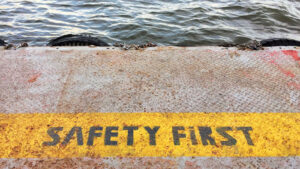
In the event of an accident or medical emergency, having a first aid kit that is fully stocked and knowing how to utilize it is essential. It should include:
- A first aid guide.
- Over-the-counter pain medication
- Eyewash
- Burn cream
- Cotton pads or swabs
- Bandages
- Antiseptic cream or spray
- Absorbent pads
- Rolled gauze
- Foil blanket
- Tweezers
- Alcohol wipes
- Disposable gloves
-
Ropes
Ropes are essential for rescuing someone who has fallen overboard, docking your boat, and fastening loose objects in bad weather.
-
Trash Bags
Garbage bags can be used as ponchos in the rain to protect objects on board.
-
Fire Extinguisher
Just because you're on the water doesn't mean that you can't have a fire inside your boat. Your fire extinguisher should be accessible to all passengers, and they should all know where to use it.
Follow Proper Docking and Anchoring Procedures
Make sure that you adhere to suitable anchoring techniques. It's not enough to have the proper anchor. You might need to drop two anchors in the shape of a V at the front of the boat to prevent it from drifting in the wind. It could be necessary to place your anchor in deeper water, perhaps 20 to 30 feet deep, to help prevent the tide from raising it.
Docking might be difficult depending on the wind, the current, and your type of boat. Make sure your bumpers are out as you go closer to the dock or shore to protect your ship, slow down, and make sure the docking lines are fastened. Bring the boat about two feet from the dock if the wind is blowing in that direction; the breeze will then gently pull it in. Then you can use lines to secure it. Approach the dock at a 20-to-30-degree angle to account for the wind if it is blowing away from the beach. Then tighten the bow line.
Remember that these boating safety tips only cover the basics. If you are not experienced in proper docking and anchoring procedures, consider the next suggestion. In addition to the above, here are also some additional tips to keep you accident free this summer.
The Best Boating Safety Tip: Take a Boat Safety Course
According to the U.S. Coast Guard, operator error is at blame for 70% of boating accidents. Make sure you are familiar with the guidelines and your obligations before you leave the port. There are many online courses accessible, some of which are free.
A free online boating safety education designed expressly for each state is available from The Boat U.S. Foundation. A further selection of online and in-person courses for boating safety is provided by the U.S. Coast Guard.
What Should You Do if You Are Involved in a Boating Accident?
No matter how closely you follow boating safety tips, you cannot prevent 100% of boating accidents. Boating mishaps are terrifying, and it might be challenging to know what to do or how to react in the heat of the moment. It's critical to keep in mind what to do in the aftermath of a boating disaster to protect your legal rights, prevent more injuries, and maybe save lives.
-
Ensure the Safety of Everyone on Board
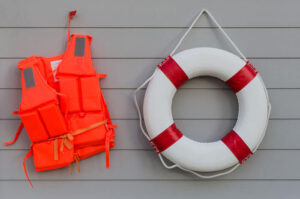
Finding out if anyone requires medical assistance should come first in a boating accident if you are on board and the boat is still floating. If you can, help anyone who has fallen overboard get back aboard the boat. If the boat is breaking apart or sinking, you should climb onto any accessible rafts or floating debris and call for assistance. You should put on your life jacket to stay afloat until help arrives.
-
Inform the U.S. Coast Guard of the incident
If the boat is still moving, pull it away from approaching vessels. As soon as possible, get in touch with the U.S. Coast Guard to report the mishap, its location, and whether any medical aid is necessary. Certain boating incidents must be reported in accordance with federal law, such as when a person is killed or when the damage to the vessel costs $2,000 or more.
When a boating accident occurs, stay at the scene. Just as in a car accident, you have a responsibility to report the incident and help with the investigation, especially if anyone is hurt.
-
Gather Information
You should acquire specific information at the accident scene. This includes:
- Name and contact information of any passengers on your boat or any other boats involved in the collision, and from any eyewitnesses who may have observed the accident from land or other boats
- Other boats' registration numbers
- Insurance information, including names, addresses, and policy numbers, for all other vessels involved in the accident
- Pictures of the boat damage, the accident site, and any other details you want to document or keep track of, if it's safe to do so
-
Contact a Louisiana Boating Accident
Louisiana law allows you to file a claim for damages sustained during your accident if you were injured due to someone else's negligence. This could include medical costs, property damage, pain and suffering, and more.
We recommend contacting Huber Thomas Law immediately to find out your legal options.
 If you have been involved in an accident, you need the best possible representation on your side. Many people in this position have never needed an attorney before and are unsure how to find the right one. Continue reading for simple tips to help you find the best personal injury attorney in New Orleans.
If you have been involved in an accident, you need the best possible representation on your side. Many people in this position have never needed an attorney before and are unsure how to find the right one. Continue reading for simple tips to help you find the best personal injury attorney in New Orleans.
1. Choose a Trial Attorney Even if You Do Not Expect Your Case to Go to Trial
95% of personal injury disputes are settled outside of court. This might lead you to assume you do not need a trial attorney. The fact is that while it is much more likely that you will not need an attorney with trial experience, you do not want to find yourself facing a trial with an attorney who is not prepared to take it on.
Working with a trial attorney assures you have choices and adaptability if the case cannot be negotiated as planned. It means you can be confident and dominate at the negotiation table, knowing you have your bases covered.
Most personal injury victims do not want to take their case to court because it costs more money, takes more time, and juries can be unpredictable. However, remember that this is true of the person or company you are suing, too.
Opposing counsel will be more inclined to offer a reasonable settlement if they know that your team is prepared to litigate the matter. We strongly suggest collaborating with a personal injury attorney in New Orleans who has the self-assurance to succeed at trial and obtain compensation if the case does go to court.
2. Have a List of Questions Ready to Go
You can learn a lot about an attorney by reading through their website, but you'll likely have additional questions. Before you set up a consultation, ensure you have a list of questions to which you need answers. Some questions we suggest asking include:
- Have you taken on cases similar to mine?
- What types of outcomes have you had in cases similar to mine?
- How long do you think the case will take to resolve?
- Will I be dealing with a single attorney, or will I have your entire law firm behind me?
- How many years of experience do you have?
- What do you think the strengths and weaknesses in my cases will be?
These are just a few of the general questions we recommend asking. You can also ask questions specific to your case. Just remember that an initial consultation is not a full strategy session. The attorney in question will not have access to all the facts, will not yet have spoken with expert witnesses, and will only be able to briefly review your case. That said, they should have enough information to give you a basic game plan.
3. Know What You Don’t Want to Hear
Ideally, your personal injury attorney in New Orleans will be straightforward and honest from the beginning. If they make promises that they can obtain a certain outcome or assurances that they can absolutely complete your case within a certain time frame, you should leave and find someone else.
The truth is that even the best attorney in the world cannot guarantee an outcome. You want someone who will fight tirelessly for you and who will be honest about the likelihood of the best possible outcome. You need an attorney you can trust.
4. Choose an Attorney Who Can Help You Handle Your Medical Bills
If you do not believe that your insurance company will pay 100% of your medical bills, and you are facing significant medical bills due to an accident in which someone else was negligent, you should contact an attorney immediately.
At Huber Thomas Law, we will work with nearby hospitals, healthcare organizations, and your insurance while preparing for your case. We can help you navigate the complexities of your medical expenses, insurance claims, applications for government assistance programs, such as Medicare or Medicaid, and if you were injured at work, Workers' Compensation claims.
We know that you already have a lot on your plate after suffering a catastrophic injury. Huber Thomas Law will help with your legal and financial concerns so you may concentrate on getting better.
5. The Law Can Be Confusing – Your Personal Injury Attorney in New Orleans Shouldn’t Be
Financial and insurance documents frequently include legalese that the average individual cannot understand. They are needlessly intricate, especially when a single word can make or break your case.
At Huber Thomas Law, we take great pride in being tenacious defenders of our clients. Our goal is to thoroughly explain everything you should know. If you have any questions, please get in touch with us anytime. A group of attorneys with a track record of success will be able to assist you. Additionally, you frequently don't pay anything unless we prevail in your case.
6. Their Payment Requirements Should Be Clear
It is often the case that personal injury attorneys take a case on a contingency basis. This means that there is no upfront cost. Their fee comes from the settlement or jury award they secure for you. In many cases, if they do not win your case then you will not owe them anything.
However, there are exceptions. However the attorney charges, whether hourly, on contingency, or per case, they should be clear about payment before you hire them. They should give you a fee schedule, if applicable. They should answer any questions you have about how and when you will be charged.
If you meet with an attorney who does not give you clear, direct answers to questions about money then they are not the right attorney for you.
At Huber Thomas Law, we take the majority of our cases based on a contingency fee, and thus we recover our fees at the end of the case and only if there is a settlement or trial verdict.
You Have Already Found the Best Personal Injury Attorney in New Orleans
You deserve the best personal injury attorney in New Orleans offer after an accident. We offer approachable legal advice here at Huber Thomas Law. We want to assist you in understanding the terminology and guide you through each step of the procedure. Our team is the best in town, and many factors differentiate us from the opposition.
Trust Our Legal Methods
 Huber Thomas Law's interdisciplinary team has successfully recovered millions of dollars in settlements for our clients. Our distinctive strategy enables us to construct arguments that lead to just and equitable resolutions.
Huber Thomas Law's interdisciplinary team has successfully recovered millions of dollars in settlements for our clients. Our distinctive strategy enables us to construct arguments that lead to just and equitable resolutions.
Despite having a particular lawyer assigned to your case, you will gain an advantage by having a whole team of attorneys on your side. Our entire team works together to achieve the final objective by bringing a variety of distinct perspectives and skillsets to the table, which assists us in advancing your case.
Our Impressive Track Record Speaks for Itself
The majority of personal injury cases are resolved out of court – 95 percent settle their differences through negotiation. Court battles are seldom the best option because they are costly and time-consuming.
Having stated that, we will stop at nothing to obtain just compensation for our clients. To ensure that we have the most leverage at the negotiating table, we prepare each case as though it will be heard by a judge or jury.
Consider the following case wins to get a quick idea of our courtroom success:
- A $3 million jury judgment for a woman injured on an airport shuttle vehicle
- A $1.6 million jury verdict for Jefferson Parish auto accident victim
Our lawyers have obtained millions of dollars on behalf of our clients by litigating hundreds of personal injury cases. We have tried many cases to verdict, and due to our breadth of experience, we are constantly prepared to file a lawsuit to defend our clients.
Call Now to Learn More About the Potential Compensation You Could Be Owed
Your ability to receive a settlement or jury award will be based on numerous factors, including:
- How serious the injury was
- The level of negligence on the part of the at-fault party
- Your recovery time
- Your lost wages
- Medical costs
These are just some of the factors that will affect your compensation. We will talk to you about other damages you may have experienced and how you can be compensated for them.
Regardless of the specifics of your case, there is one thing you can always count on when you choose Huber Thomas Law: We create a unique strategy for every case to work toward the best possible outcome. Contact our office today to request a consultation with a personal injury attorney in New Orleans.
Car accidents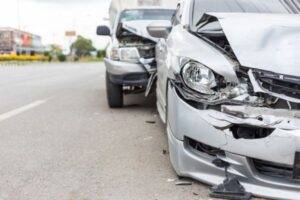 are overwhelming and exhausting. In the minutes and hours after a crash, you’re probably shaken up and grateful to be alive. However, injuries and property damage quickly become daunting issues. From mounting bills to calls from the insurance company, there is a lot to juggle.
are overwhelming and exhausting. In the minutes and hours after a crash, you’re probably shaken up and grateful to be alive. However, injuries and property damage quickly become daunting issues. From mounting bills to calls from the insurance company, there is a lot to juggle.
To make matters more difficult, anything you say may be used against you. This is why it’s essential to have the best car accident attorney New Orleans has to offer.
Read on for details regarding the when, why, and how of choosing a lawyer to represent you after a Louisiana car accident.
What Is the Role of A Car Accident Lawyer?
Lawyers spend years learning the intricate details of different types of law. For a car accident attorney in New Orleans, that means an extensive focus on Louisiana driving regulations. Plus, any nuanced variables that have an effect on New Orleans specifically.
Here are a few ways a car accident lawyer in New Orleans may assist you after an accident:
- Informing – Because the average person doesn’t regularly encounter legal jargon, they usually aren’t familiar with their unique rights. A lawyer can help you understand the driving laws in New Orleans, explaining whether you were or were not at fault.
- Advising – Competing interests can quickly complicate the details surrounding an accident. The other party, witnesses, and insurance companies will all likely have different opinions on what happened. It’s important to sort through the differing opinions with an expert. A well-versed car accident attorney in New Orleans will properly advise you.
- Negotiating – Very few cases go to court, which means negotiation is an important part of the process of securing compensation. A reputable car accident attorney can handle these meetings with the other party, as well as their lawyers and insurance company. This gives you the opportunity to focus on your recovery.
- Litigating – In the rare case that an agreement can’t be reached through negotiations, you need an attorney to represent you in court. A lawyer who has walked with you throughout the entire process from day one will have the knowledge to bring forth a strong case. This may help secure the compensation you need for medical bills, damages, lost wages, and much more.
3 Signs You Need a Car Accident Attorney
Navigating the complexities of the legal system can be difficult, especially when you’re trying to recover from an accident. The good news is, a New Orleans car accident lawyer can be incredibly helpful in these situations.
Here are three instances that definitely require legal representation after a car accident:
- You were injured in the accident
- Your passenger(s) were injured in the accident
- There’s significant and costly property damage
When these factors are at play in a car accident, there will be higher claims. This goes for both medical costs and vehicle repairs or replacement. Compensation to cover these expenses is crucial. An attorney’s job is to look at all of the factors to ensure your settlement covers all of these costs, allowing you to get back to your life.
Alternatively, if you were in a minor accident, but feel overwhelmed by the claims process, you should also contact an attorney. There are times when insurance companies and other parties do not cooperate or act fairly. When you feel in over your head, it’s important to ask for help.
What To Look For In A Car Accident Lawyer
Finding a car accident attorney in New Orleans is easy when you know what to look for. Likewise, most attorneys will provide free consultations. This allows you to have a few meetings and make a choice based on who made you feel the most comfortable.
It’s also important to note that most attorneys will take your case on contingency. That means you won’t pay anything upfront unless the attorney helps you win your case or reaches a fair settlement.
Here are important characteristics to look for in a New Orleans car accident lawyer.
Availability
Organization and availability are crucial when it comes to running a law practice. The attorney you work with should have lines of communication open at all times. Look for a law firm that has a team of legal assistants who are available to provide updates on your case when you need them the most. Likewise, you should be able to schedule a meeting within a reasonable amount of time if you need a face-to-face update.
Experience
Although education is important, nothing can compare to experience. Your team should have many years of work experience in the area of automobile accidents. This allows for a unique perspective and familiarity with traffic laws that are at play after a Louisiana car accident. It’s also important to hire an attorney with extensive courtroom experience in the event that your case requires litigation.
Honesty
It’s important to know the prospects of your case before things get underway. Your New Orleans car accident lawyer should be open and honest about the following:
- What type of evidence it will take to build a strong case
- How much compensation you should seek
- Whether it appears you have any fault in the accident
Your attorney should be upfront about your case from day one. This will allow for the best possible settlement.
Positive reviews
The best compliment is a glowing reference. Search for a legal team that has great online reviews on websites like Avvo and Google, as well as positive testimonials.
When you read through reviews or talk with references, previous clients should note that the attorneys were honest and helpful. As previously mentioned, you also want to look for lawyers who are known for being present and ready to answer their client’s questions with minimal follow-up time.
Huber Thomas Law: Your Partner After a Louisiana Car Accident
After an accident, you need the best car accident attorney New Orleans has to offer. Here at Huber Thomas Law, we provide legal assistance that is approachable. Our goal is to help make sense of the jargon and walk you through every step of the process. Here is what sets us apart from the competition and makes us the best team in town.
Our process and approach
The collaborative team at Huber Thomas Law has recovered millions of dollars in settlements for our clients. Our unique approach allows us to build cases that result in fair and equitable outcomes.
Although you will have a specific attorney assigned to your case, you will benefit from an entire team of lawyers. By joining together with multiple unique viewpoints and skillsets, our entire team contributes to the end goal. This helps us take your case to the next level.
Further, we have a reputable portfolio of crash experts. These individuals help us recreate scenes, while also shedding light on the unique elements of a crash. This is particularly important in the event that your case goes to court.
Case victories
As previously mentioned, the majority of cases involving car accidents settle outside of court. In fact, 95% of them reach a conclusion through negotiations. Court battles are expensive and time-consuming, which is why it’s never the preferred route.
That said, we are committed to securing fair settlements for our clients, no matter what it takes. We prepare for every case as if it will go before a judge or jury to ensure maximum power at the negotiating table.
For a quick view of our success in the courtroom, consider the following case victories:
- $3 million jury verdict for a woman who was injured when an airport shuttle van moved while she was boarding
- $1.6 million jury verdict for a client who had to have back surgery after a Jefferson Parish, Louisiana car accident
Our attorneys have litigated hundreds of cases arising from automobile accidents and secured millions of dollars on behalf of our clients. We have taken numerous cases to trial, and based on our depth of experience, we are always ready to pursue litigation to protect our clients
Call Huber Thomas Law Today
 If you are caught up in the aftermath of a car accident, legal representation may help you secure the settlement you deserve.
If you are caught up in the aftermath of a car accident, legal representation may help you secure the settlement you deserve.
At Huber Thomas Law, we offer a free and confidential consultation in order to assess your case. We represent clients in Louisiana, Texas, Mississippi, and other states across the country.
Schedule a meeting today to find out more about how our team can help you.
From dangerous hurricanes to tropical storms, the Gulf South often bears the brunt of natural disasters. The result is destruction that affects homes, businesses, and major resources. These losses underscore the importance of having a comprehensive insurance policy that includes coverage for property damage.

Unfortunately, insurance jargon can be difficult to comb through, especially after disaster strikes. At Huber Thomas Law, we know how to handle property damage claims, and we can walk you through the process. Here’s what you should know about your rights and securing the compensation you’re owed.
What Is Considered Property Damage?
Property damage is defined as an injury to real or personal property. Real property is land and anything permanently attached to it, such as a house. Fortunately, property owners can obtain insurance to protect against the risks associated with these damages. Here are some of the most common types of property damage claims, especially in Louisiana and the surrounding states.
Hurricane damage
Hurricanes are perhaps the largest weather threat in Louisiana, as well as the entire Gulf South region. Driving rain and high winds come together to create catastrophic damage. Hurricane Laura, the most recent hurricane to date, destroyed more than 500,000 homes and businesses. From roofs torn off buildings to electrical fires, these weather events have deadly and disastrous potential.
Flood damage
It only takes an inch of floodwater to cause more than $25,000 in damage. Whether it’s carpet or hardwood, homes and businesses simply can’t withstand that type of moisture. The end result can be any or all of the following:
- Roof issues, destroyed flooring, and foundation cracks
- Mold and mildew on flooring, drywall, insulation, and belongings
- Damaged kitchen appliances
- Septic and well water clogs due to excess water and debris
- Damage to electrical wiring
Unfortunately, many homeowners' insurance policies don’t include flood damage. This coverage is provided through a separate policy.
Fire damage
Fires can happen in the blink of an eye. Space heaters and cooking mishaps make them a possibility anywhere. Downed power lines and wildfires are other causes that are commonly cited in property damage claims.
Fire-related property damage examples are broken into two categories. The first is primary damage due to the flames, but secondary damage often occurs due to smoke and the water used to put out the fire.
Tornado damage
Louisiana and other nearby states ranked among the top 10 states that fell victim to tornadoes in 2021. The high winds associated with a tornado can damage buildings, or even level them. Even the lowest-ranked tornado, an EF 0 sustains winds of up to 85 mph. This can lead to broken branches and downed trees that fall onto homes, causing significant property damage.
Willful damage
Vandalism is another aspect of property damage law that is difficult to deal with. Whether it’s your home or business, deliberate destruction is costly. Any intentional act to destroy or damage your property is unacceptable.
Examples include:
- Broken windows
- Arson
- Cutting down trees without permission
- Graffiti or tagging
- Mailbox or signage tampering
The Property Damage Insurance Claims Process: 5 Things To Know
Damage to your home or business is devastating. To make matters worse, many insurance companies make the property damage claims process frustrating. It seems they’ll do everything they can to avoid paying out a fair settlement. In these cases, knowledge is power. Here are 5 important things to know about how to handle property damage claims.
1. You must report the incident as soon as possible
Property damage claims generally take time. From that first call to receiving a payout, it can be weeks or even months. Nonetheless, it’s essential to get in touch with your insurance company as soon as you’ve assessed the damage. Your policy may actually provide guidance regarding how much time you have.
This first phone call doesn’t have to be lengthy. In most cases, you’ll simply provide information that helps the employee locate your policy, and answer questions about what happened. You’ll also provide details about the damage and how extensive it is. From there, the company will most likely assign an employee to your case and have that individual touch base at a later date.
As always, be open and honest about the property damage and what caused it.
2. It’s important to document everything
After you’ve contacted your insurance company, take photos and thoroughly document the damage. Be sure to get clear photos from different angles. A video is also helpful in certain situations. Keep a log of the property damage, how it appears, and how it changes (if at all) as the days go on.
If you’re reading this before you’re in the midst of property damage claims, it’s a good time to do a value assessment of your home. If you’ve recently invested in a renovation or have acquired high-value items since you first purchased insurance, be sure to update your policy. This will help you secure the compensation you need in the event of a disaster.
3. Your adjuster is an important piece of the puzzle
Once you’ve filed a claim, an insurance adjuster will be assigned to your case. This individual likely has experience assessing many different types of property damage claims, including ones similar to yours. This person will investigate the damage, negotiate the coverage you receive, and hopefully resolve the claim.
While adjusters are sympathetic to what you’re going through, it’s important to remember that they work for your insurance company. Try to foster a cordial relationship with this person. Do your best to remain professional and courteous, even when you disagree with certain conclusions.
As always, dealing with adjusters and other insurance representatives can be draining. This is why it’s ideal to have a property damage lawyer in your corner.
4. Major local disasters may result in a different process
When a major disaster hits an entire geographical region, the process of securing insurance money can be different.
For one, there may be public adjusters offering to assess your property damage. These individuals work for policyholders, rather than insurance companies. However, it’s important to know that there are fees associated with using a public adjuster.
Further, in the event that your damages exceed the amount of coverage you receive, federal agencies may provide grants or low-interest loans. These are designed to aid in recovery efforts after a major disaster.
Again, a skilled property damage attorney is your best bet for navigating after a major local disaster.
5. An experienced property damage attorney can help
Property damage claims should be simple and straightforward. You pay your insurance premium with the expectation that your insurance company will cover costs when you need it the most. Unfortunately, this isn’t always the case. After decades of experience navigating property damage law, we’ve been disappointed to see many insurance companies act in bad faith.
Hiring a property damage attorney is beneficial for many reasons. Consider the following:
- Your attorney will handle all communication with the insurance company, which means you won’t have to worry about saying the wrong thing.
- A lawyer may enlist experts from a range of different industries to build a strong case regarding your losses.
Here are some examples of common types of property damage claims.
In the event that negotiations aren’t successful, your lawyer can represent you in court with full knowledge of prior events and correspondence.
Huber Thomas Law: Your Property Damage Attorneys
At Huber Thomas Law, we believe in holding insurance providers accountable. We will thoroughly review your property damage claims, pinpointing exactly what you’re entitled to. We lean on guidance from the attorneys within our own team, as well as the expertise of property damage inspectors. This approach allows us to build a winning case that will help us secure the money you need to repair or replace your property.
Our courtroom success stories
The team at Huber Thomas Law has decades of combined experience in the courtroom. We are diligent and unrelenting when it comes to pursuing fair settlements for our clients. Simply put, our previous case victories speak for themselves. Highlights related to property damage law include:
- $26.2 million settlement for owners of a Louisiana high-rise office building that suffered extensive hurricane damage
- $4 million in a jury verdict for a retail center owner after another Gulf South hurricane
- More than $15 million in settlements for Hurricane Laura and Delta homeowners
To read through more of our success stories in a range of different practice areas, we invite you to review our case victories.
Don’t let property damage devastate your family or business. Huber Thomas Law will serve as your tireless advocate every step of the way. We represent clients in Louisiana, Texas, Mississippi, and across the nation. Schedule a complimentary consultation today.

Litigation is defined as the process of taking legal action. From individuals to companies, the issues that lead to litigation are usually solved through mediation, formal arguments in a court hearing, or trial.
When it comes to business litigation, the issues at hand involve business entities, such as companies and their employees. Likewise, the parties involved may also be sole proprietors or even business partners.
These lawsuits require extensive evidence in the form of documentation, as well as research and witnesses. What’s more, it can take years to reach a settlement, especially when large sums of money are at stake. The good news is, that a business litigation attorney can assist when these issues arise.
Types Of Business Litigation
From workplace discrimination to a breach of contract allegations, business litigation encompasses a wide range of different issues. Some may involve a large company with hundreds of employees. Others may be an issue between a single employee and a small family-owned business. Here are some of the most common examples of issues that lead to a need for business litigation services.
Employment
We spend much of our lives doing our jobs, so perhaps it’s no surprise that employment issues are common. Most of these issues require us to navigate both federal and state law. Examples of employment disputes include, but are not limited to:
- Issues over wages, hours, and breaks
- Workplace harassment
- Discrimination
- Wrongful termination or retaliation
- Breach of non-compete or nondisclosure agreements
- FMLA (Family and Medical Leave Act) violations
Don’t see your particular employment issue listed here? Please note, that this is not an exhaustive list. At Huber Thomas, we understand that every industry and workplace is unique. Contact us to learn more about how we may represent you in a business litigation case.
Partnership
In some cases, the issue isn’t between an employer and employee, but between business partners. Issues may arise over misappropriated funds, wrongful activity, or simple disagreements regarding how to run the company. These claims often involve one partner breaching a fiduciary duty to another partner.
While the perfect scenario would be internal problem solving, some disagreements become full-blown feuds. This type of case requires a business litigation attorney to represent the interests of each party.
Breach of contract
Contracts are a part of everyday life, especially in the world of business. Terms of employment and transactions for services are just a few aspects of companies that are contractual in nature.
The success of your business depends on everyone fulfilling the obligations they are contracted for. Unfortunately, breaches of contract are common, and they can have a serious impact on all parties.
This is another area of business law that can vary greatly from state to state. For this reason, it’s important to have an experienced business litigation attorney in your corner. This person can properly navigate the issues at hand and build a case for companies and/or individual parties.
Intellectual property
Businesses and independent contractors depend on the right to own intellectual property. This is often the reputation an entire career is built upon. It’s also the source of continued revenue and financial stability. Examples include:
- Trade secrets – Confidential business information that gives you an edge against other companies in your industry
- Trademarks – Words, symbols, or colors that distinctly differentiate your brand from other competitors
- Copyrights – Rights to distribute your intellectual property, such as software, graphic arts, books, etc.
- Patents – Utility or design rights to an invention that prevents others from stealing your ideas
To learn more about your rights when it comes to these types of intellectual property, visit the U.S. Patent and Trademark Office and the U.S. Copyright Office.
Class actions or product liability
For businesses providing products or services, there is a lot of pressure and responsibility. Even with the best processes in place, issues may arise. When many customers, clients, or even employees have been affected, the result can be a class-action lawsuit.
Examples include:
- Injuries or illness due to a product
- Data breaches
- Employment practices
These types of lawsuits can be devastating for a business as they drain finances and consume a lot of time. A business litigation attorney can help you protect and defend your business by building a strong case. If settlements are necessary, you will have someone to advise you and help negotiate a fair sum.
Why Hire A Business Litigation Lawyer?
Lawsuits take time and money. Unfortunately, it’s common for legal battles to drag on for years. This is both costly and exhausting. Don’t let this complicated process distract from your career and disrupt your personal life.
A business litigation lawyer will handle the delicate process of navigating a lawsuit. From filing papers with the court system to communicating with the other party, your attorney will bear the burden for you.
In most cases, you can expect your attorney to:
- Research the facts, circumstances, and documentation
- Determine what type of experts or witnesses will be necessary
- Identify case law and any prior lawsuits that have set a precedent
- Communicate with the other party and/or their legal counsel
- Schedule and coordinate court dates in addition to preparing briefs for submission
When you have legal representation, you can focus on keeping your business or career on track. A business litigation lawyer is one of the best investments you can make when you’re facing a lawsuit. This advice stands for both plaintiffs and defendants.
What is the difference between business litigation and corporate law?
The legal industry is incredibly diverse. In addition to various areas of practice, lawyers also separate when it comes to litigation and corporate law. What is the difference? In theory, one spends more time in the courtroom than the other.
Business litigation attorneys spend the vast majority of time tied up in legal battles. Whether they’re in the courtroom or in mediation, they’re actively dealing with lawsuits. If you are planning to sue, or you’re being sued, you want a litigator in your corner. These attorneys have the experience necessary to help companies and individuals win cases.
On the other hand, corporate law is a term that encompasses advising and preparing a business. They will draft contracts, provide advice on business structuring, and help business owners understand their legal obligations. This is an important practice that usually calls for an ongoing relationship between a business owner and a legal team or adviser.
Huber Thomas Law: Your Business Litigation Team
 Business litigation is no easy feat, regardless of how big or small the issues are. When you’re facing this type of lawsuit, you need a team of experts you can trust.
Business litigation is no easy feat, regardless of how big or small the issues are. When you’re facing this type of lawsuit, you need a team of experts you can trust.
At Huber Thomas Law, we have extensive knowledge and experience on our side. In addition to working tirelessly for our clients, we make it our mission to clearly explain the legal process. Business litigation often involves confusing jargon and lengthy contracts. Our attorneys will take the time to clearly explain everything you need to know.
What Sets Us Apart
When you partner with Huber Thomas Law, you benefit from a collaborative approach that yields victorious results. Our entire team of highly-experienced business litigation attorneys will work together, bringing individual unique knowledge to the table. This diversity allows us to see a case from several different angles.
In reality, most cases settle outside of court. Lawsuits are expensive and time-consuming, even for the largest corporations. This is why mediation and negotiating are the first choice for most individuals and companies. That said, we still prepare for every case as if it is going before a jury or judge. This means thorough research and expert witnesses help us build your case, resulting in better chances of securing the compensation you deserve.
Our Case Victories
We take great pride in our case victories because they demonstrate tireless efforts that produce serious results. We’ve helped our clients secure millions of dollars in a range of different business litigation cases, including:
- Over $50 million in assets for a business owner who was defrauded by business partners and employees
- A $7 million jury award for a business owner who was unjustly written out of a business deal by his partners
- $3 million for a client who suffered extensive damages from a failed joint business venture
- $42 million for victims harmed by home health companies and physicians committing Medicare fraud
To learn more about how we can assist in your case, we encourage you to read about our previous success stories.
Schedule A Consultation
It’s normal to feel anxious when legal troubles are on the horizon. At Huber Thomas, our goal is to take that burden on for you. With our team of business litigation attorneys, you won’t have to worry about the outcome of your case. Are you living outside of Louisiana? Members of our team are licensed to practice in Mississippi, Texas, and Washington D.C. If you’d like to discuss the details of your case, please contact us for a free and confidential consultation. This is the best way to determine the next steps that will help you reach a conclusion.
From festivals to football games, it seems there are always opportunities to enjoy alcohol in Louisiana. Unfortunately, there are people who take the risk of getting behind the wheel after drinking. The results of drunk driving accidents can be devastating, often resulting in serious injuries and even death.
At Huber Thomas & Marcelle, our attorneys always aim to remind people the cost of drinking and driving is too high. However, even with the best intentions, we can’t control everyone else on the road. If you notice a driver has little control over their vehicle or delayed reactions, they may be under the influence.
Accidents with drunk drivers require a timely response. Here’s what you should know if you ever find yourself in this serious type of incident.
How Common Are Accidents with Drunk Drivers?
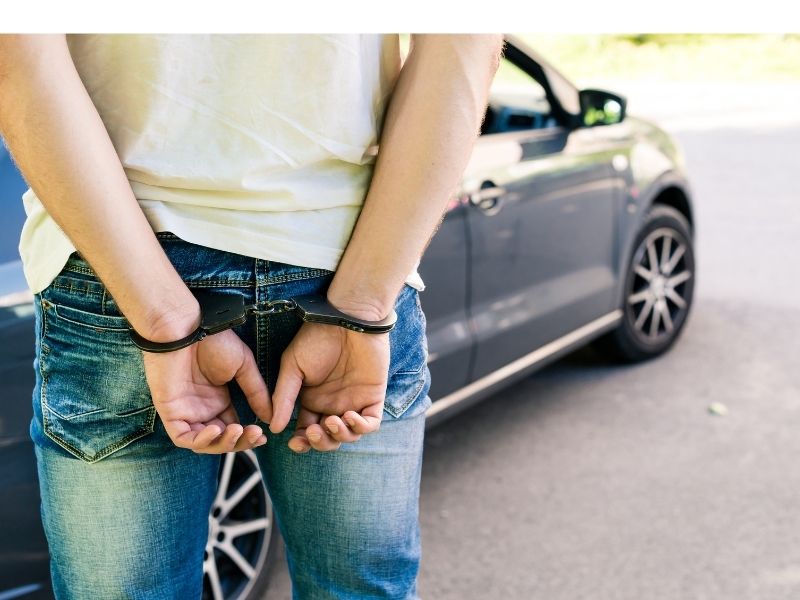 According to the National Highway Traffic Safety Administration (NHTSA), 28 people die in drunk driving accidents every day. That amounts to one person every 52 minutes. While this is on a national level, the numbers aren’t much better in the state of Louisiana. In fact, authorities recorded 216 alcohol-impaired fatalities and close to 6,000 DUI arrests in 2018.
According to the National Highway Traffic Safety Administration (NHTSA), 28 people die in drunk driving accidents every day. That amounts to one person every 52 minutes. While this is on a national level, the numbers aren’t much better in the state of Louisiana. In fact, authorities recorded 216 alcohol-impaired fatalities and close to 6,000 DUI arrests in 2018.
How do drunk drivers cause these accidents? Every situation is unique, but we know that drinking alcohol can cause blurred vision, delayed reactions, and poor coordination. Some common types of drunk driving accidents include:
- Wrong-way accidents where drunk drivers can’t accurately comprehend which side of the road to drive on
- Head-on collisions resulting from drowsy drunk drivers who veer into oncoming traffic
- Rear-end accidents because drunk drivers can’t accurately determine distances
All of these drunk driving accidents can have deadly consequences. Likewise, it’s not uncommon for pedestrians to fall victim to drunk drivers who don’t see them crossing the road.
When someone makes the decision to drive impaired, they aren’t just putting their own life at risk. Everyone on the road can fall victim to their actions. When do most drunk driving accidents happen? According to Department of Transportation research, 31% of fatal drunk driving accidents take place over the weekend. Further, drunk drivers are most likely to be on the road between midnight and 3:00 a.m.
What to Do If You've Been in An Accident with A Drunk Driver
A car accident is always frightening, regardless of the details, but accidents with drunk drivers are even more challenging. Try to stay calm and follow these steps to secure your physical and financial safety.
Take note of important identifying information
If you suspect the driver in an accident is drunk, it’s important to jot down identifying information.
It’s not uncommon for drunk drivers to flee the scene of a crash. This is why it’s critical you take note of the make, model, and color of the vehicle, as well as the license plate number.
If you can see what the driver looks like, even better. These details will help you if the driver does leave the scene before police arrive.
Call the police
Next, find a safe place to park while you call for help. Make your way to the shoulder of the road or an adjacent parking lot to ensure you’re out of traffic. If the accident has occurred at night, remember to turn on your hazard lights for increased visibility.
Call 911 and ask for an officer to come to the scene. If you or someone has been injured, tell the operator that you also need emergency medical assistance. If you suspect the driver is drunk, share this information with the 911 operator on the line.
Gather any details and evidence
Again, if the driver appears to be under the influence, it may be difficult to communicate in a constructive way. If they are cooperative, ask to take a photo of their driver’s license and insurance card. You can also exchange contact information.
Take photos or a video of the crash from different angles. Include close-up images of damage, as well as a video of the entire scene to provide context. Don’t forget to take photos of skid marks, debris, and other details.
If there are witnesses in the area, gather their contact information and try to record a statement about what they say. This testimony may be important later in the event of a lawsuit.
Seek medical help
Even if you feel completely fine, it’s important to see a doctor for a thorough check-up. Some injuries and medical issues may seem non-existent or minimal at first due to shock, only to worsen later. X-rays and other tests can confirm whether you need medical treatment.
If you are suffering from injuries, be sure to keep detailed records of your medical appointments. Bills can add up quickly and you’ll need a paper trail to get compensation from insurance companies.
Call your insurance company
Let your insurance company know that you’ve been in an accident without providing too many details. Your attorney can provide the necessary information later. Likewise, do not agree to speak with the other party’s insurance company yet.
Hire drunk driving accident attorneys
The aftermath of a car accident is stressful, especially if the other party was intoxicated. In addition to facing a lawsuit from you, they are probably handling DUI charges (and possibly injuries).
By hiring an attorney, you’re actively protecting yourself, especially if you’re in one of the following situations:
- You or a passenger in your vehicle was injured
- The other party was injured or killed
- There is costly property damage
As experts in the field, lawyers can secure the compensation you need to cover property damage and medical bills. The process is less daunting when you have someone in your corner fighting for what you deserve.
From crawfish boils to Mardi Gras parties, there is so much fun to be had in Louisiana. If you’re feeling tipsy after, call a friend, rideshare, or a taxi to pick you up. The risk of drunk driving is too high, as the consequences could be deadly or life-altering.
Beyond the seriousness of an accident, drunk driving is a misdemeanor charge in Louisiana, commonly referred to as a DWI. Penalties for a first offense may include:
- 10 days to 6 months of jail time
- $300 to $1,000 in fines
- Judge-ordered ignition interlock devices (IIDs)
- License suspension
In short, driving while drunk is simply not worth it.
Huber Thomas & Marcelle: Your Drunk Driving Accident Attorneys
Most accidents with drunk drivers have devastating results. Perhaps a loved one was killed or you sustained life-altering injuries. Whatever situation you’re in, the drunk driving accident attorneys at Huber Thomas & Marcelle can help. This is not a time when you should have to deal with insurance companies or documents full of legal and medical jargon alone. You need a team you can trust to walk you through the process of getting the compensation you deserve.
Our Approach
An in-depth investigation is the key to securing a victory in the courtroom. Along with police reports and expert witnesses, our team will complete a collision reconstruction. This helps everyone see the extent of an accident and the resulting injuries.
Further, we always schedule interviews with other parties, including doctors, police officers, and witnesses. This important documentation is essential to proving the extent of an accident that has caused serious harm.
Courtroom Success
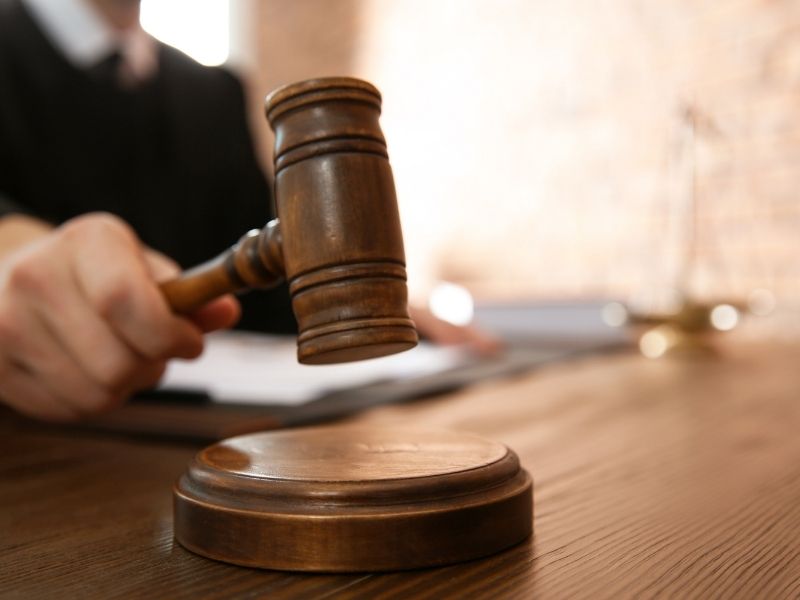 Most cases involving car accidents will settle outside of court. This is simply due to the expensive and time-consuming nature of a lawsuit. However, the seriousness of drunk driving accidents can often lead to a more prolonged process. Our drunk driving accident attorneys prepare for every case as if it is going before a judge or jury to ensure excellent preparation.
Most cases involving car accidents will settle outside of court. This is simply due to the expensive and time-consuming nature of a lawsuit. However, the seriousness of drunk driving accidents can often lead to a more prolonged process. Our drunk driving accident attorneys prepare for every case as if it is going before a judge or jury to ensure excellent preparation.
Our previous case victories demonstrate our intensive approach to pursuing fair settlements for our clients. The team at Huber Thomas & Marcelle has litigated hundreds of cases arising from automobile accidents, resulting in millions of dollars for our clients.
Here’s a look at some of our courtroom success stories:
- $2.3 million for a woman who was injured when an airport shuttle van moved while she was boarding
- $1.6 million as a result of a jury verdict for a client who underwent back surgery after a car accident in Jefferson Parish
Because of our advanced experience, we are always ready to take a case to trial and fight for our clients. If you or someone you care about is coping with injuries after a drunk driving accident, we can help. To discuss the details of your case, schedule a complimentary consultation today.
